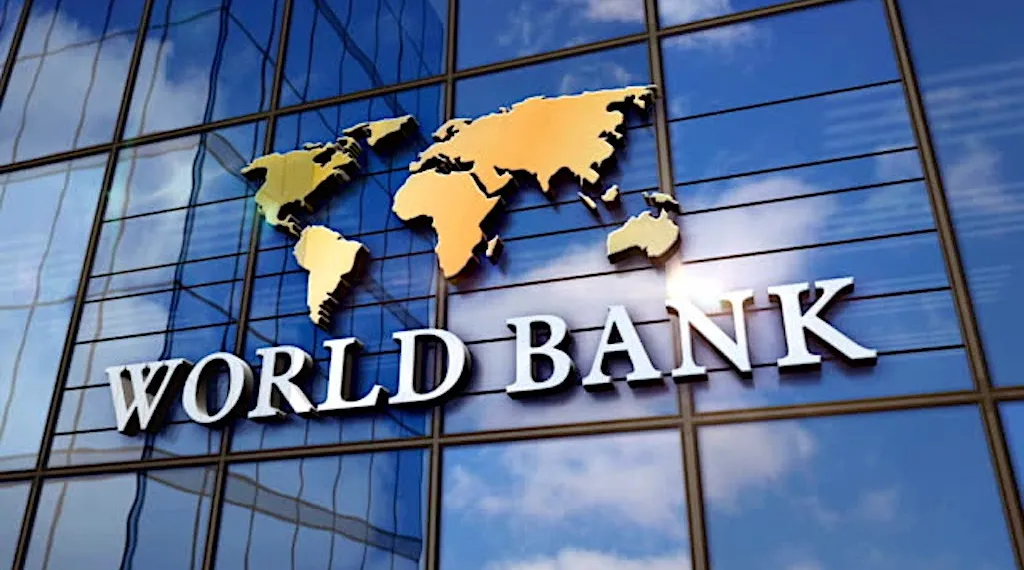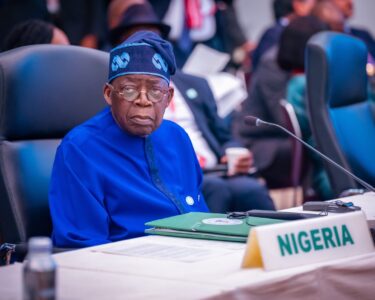Summary
Fastest Growth in a Decade (Excluding Pandemic Rebound): Nigeria’s economy grew by 3.4% in 2024—the highest annual growth since 2014—driven by oil recovery and the tech/finance sectors.
Inflation Still a Challenge: Despite reforms, inflation remains high. The World Bank forecasts it will average 22.1% in 2025.
Economic Reforms Show Promise: Tinubu’s administration is credited with restoring macroeconomic stability, but hardship remains widespread among citizens.
Nigeria’s economy posted its strongest annual growth in ten years in 2024, propelled by key reforms introduced by President Bola Ahmed Tinubu’s administration, the World Bank reported on Monday. However, the bank cautioned that inflation remains stubbornly high, posing a challenge to economic stability.
According to the latest Nigeria Development Update (NDU) released in Abuja, real Gross Domestic Product (GDP) rose by 4.6% year-on-year in the fourth quarter of 2024. This surge lifted full-year growth to 3.4%, marking the highest rate since 2014, aside from the temporary post-COVID rebound observed between 2021 and 2022.
The growth, the World Bank noted, was largely driven by the revitalisation of the oil and gas sector, alongside sustained momentum in the technology and financial services industries.
However, the agricultural sector lagged, registering a sluggish 1.2% annual growth. The bank attributed the poor performance to ongoing insecurity in Nigeria’s Middle Belt—a key crop-producing region—and soaring input costs that have hampered farming activities.
Looking ahead, the World Bank projects Nigeria’s economy to expand at a “mildly higher” pace of 3.7% in 2025.
Despite the progress on growth, inflation continues to cast a shadow over the economy. The bank described inflation as “high and sticky,” with expectations that it will ease slightly to an average of 22.1% next year.
Taimur Samad, the acting World Bank Country Director for Nigeria, acknowledged the government’s achievements, stating, “Nigeria has made impressive strides to restore macroeconomic stability.”
Since assuming office in May 2023, President Tinubu has rolled out sweeping economic reforms aimed at correcting long-standing fiscal imbalances and stimulating growth in Africa’s most populous country. These include ending the petrol subsidy and floating the naira—moves widely welcomed by international institutions.
But the reform measures have also unleashed a wave of hardship. Millions of Nigerians are grappling with skyrocketing food and energy prices in what many describe as the most severe cost-of-living crisis in a generation.
The Road to Nigeria’s Economic Rebound
Nigeria’s recent economic turnaround comes after years of stagnation, external shocks, and deep-seated structural challenges. The journey to the 3.4% GDP growth in 2024—its strongest in a decade—has been marked by bold reforms, difficult trade-offs, and a commitment to fiscal recalibration under President Bola Ahmed Tinubu’s administration. This growth signals a turning point after years of stagnation.
Economic Legacy and Lingering Challenges
Before Tinubu assumed office in May 2023, Nigeria had spent years grappling with sluggish growth, rising unemployment, dwindling foreign investment, and a currency under persistent pressure. The country’s overdependence on crude oil revenue and ballooning fuel subsidies further weakened public finances. By 2022, oil theft and underinvestment in the energy sector had shrunk production to historic lows, while inflation was spiralling.
Insecurity, particularly in the North and Middle Belt, disrupted agricultural production and contributed to food scarcity. Meanwhile, foreign exchange restrictions and a rigidly managed exchange rate created a thriving parallel market, deterring investors and complicating trade.
Reform Agenda under Tinubu
Recognising the need for urgent intervention, the Tinubu administration wasted no time implementing economic reforms. Among the most consequential measures were:
Petrol Subsidy Removal (May 2023): The president’s decision to eliminate the long-standing petrol subsidy was a watershed moment. While aimed at freeing up public funds for capital investment, it instantly triggered a sharp rise in fuel prices and transport costs.
Exchange Rate Unification: In June 2023, the Central Bank of Nigeria (CBN) moved to unify the multiple exchange rates and allow the naira to float freely. Though the move initially led to a steep depreciation of the currency, it improved transparency and market confidence.
Central Bank Reform: The new administration initiated a clean-up of the apex bank’s monetary policy framework. It tightened monetary policy to combat inflation, cleared a backlog of forex obligations, and reduced discretionary interventions in the forex market.
Revenue Mobilisation: The government also took steps to broaden its revenue base through tax reforms and efforts to block leakages in public finance. Fiscal discipline was reintroduced with an eye on debt sustainability and capital investment.
Moments of Concern and Scepticism
While the World Bank largely backed Tinubu’s reform agenda, it raised red flags at several points and maintained a measured and conditional optimism—emphasising that macroeconomic stability was only one part of the equation. The institution repeatedly stressed the importance of inclusive growth, institutional transparency, and well-implemented safety nets to ensure the reforms truly benefited the wider population.
By mid-to-late 2023, the World Bank, which had initially hailed the removal of fuel subsidies as a bold step, warned of severe social and inflationary impacts if adequate safety nets weren’t deployed. In its June 2023 edition of the Nigeria Development Update (NDU), the Bank stated:
“Fuel subsidy removal is critical, but its implementation must be accompanied by well-targeted measures to protect the poor and vulnerable.”
The report expressed worry that the savings from subsidy removal might not translate quickly enough into benefits for ordinary Nigerians, especially in the absence of strong palliative frameworks.
Following the naira float in June 2023, the local currency experienced rapid depreciation, which spooked markets and worsened inflation. At that point, the World Bank observed that the unification of exchange rates, though a step in the right direction, had to be carefully managed to avoid speculative attacks and further erosion of purchasing power.
In its December 2023 NDU, sceptical about the Central Bank’s ability to manage the market without stronger reserves and a clearer communications strategy, the Bank cautioned:
“The exchange rate unification reform must be accompanied by monetary tightening and robust forex market transparency to avoid macroeconomic instability.”
One of the most consistent criticisms from the World Bank during the reform process was the government’s inadequate social protection mechanisms. Despite economic reforms, the Bank noted that poverty levels were rising, and real incomes were shrinking due to high inflation and slow wage growth.
By late 2023, the World Bank warned that Nigeria risked reversing any reform gains if the cost-of-living crisis was not urgently addressed. It pushed for the accelerated deployment of cash transfer schemes and palliative programmes.
In early 2024, though encouraged by early reforms, the Bank began expressing concern that momentum could be lost, particularly in key areas like electricity market reforms, revenue generation, and public sector accountability.
At the same time, the Bank pointed out that structural bottlenecks, including unresolved insecurity in food-producing regions and delays in the power sector overhaul, were impeding broader development outcomes. It stressed the need for strengthening state-level fiscal coordination, scaling up investment in human capital (education, healthcare), and improving the business environment for SMEs.
Sectoral Drivers of Growth
The oil and gas sector, previously marred by theft and underproduction, began to recover in late 2023 following renewed investments and improved surveillance of critical infrastructure. Increased crude exports, along with domestic refining prospects (notably the Dangote Refinery), boosted the sector’s performance in 2024.
Meanwhile, Nigeria’s digital economy continued to expand, with fintech, telecoms, and IT services driving strong gains. The financial services sector benefited from digital innovations, broader mobile penetration, and growing investor confidence in regulatory reforms.
World Bank and IMF Endorsements
The boldness of Tinubu’s economic agenda drew support from global financial institutions. Both the World Bank and the International Monetary Fund (IMF) praised the reforms as necessary steps toward achieving long-term macroeconomic stability, committing financial and technical assistance to cushion the impact on vulnerable populations.
In mid-2023, the World Bank approved a $750 million loan to support Nigeria’s reform implementation, including safety net expansion, revenue collection improvement, and support for SMEs.
Public Sentiment and Cost-of-Living Crisis
Despite the policy wins, everyday Nigerians have borne the brunt of the transition. Rising inflation, especially in food and transportation, has eroded real incomes. Labour unions have staged protests, and calls for wage increases have intensified across the public and private sectors.
In response, the government introduced palliative measures including cash transfers, subsidised transport schemes, plans for mass transit powered by compressed natural gas (CNG), and an increase in minimum wage, which have been criticised in some quarters as “insufficient”.
Looking Ahead
While challenges remain, particularly around inflation, currency stability, and food security, Nigeria’s 2024 economic growth figures mark a turning point. The World Bank’s forecast of a higher 3.7% growth rate in 2025 suggests that if current reforms are sustained and inclusive policies are prioritised, the country may be on the cusp of a broader, more resilient economic transformation.







